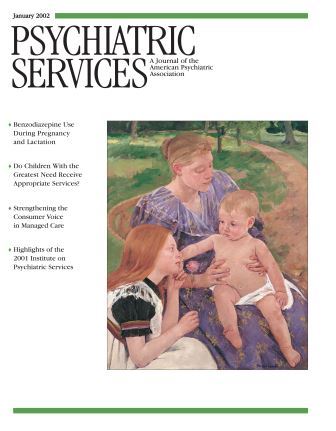Work Rehabilitation and Patterns of Substance Use Among Persons With Schizophrenia
Abstract
OBJECTIVE: The aim of this study was to identify patterns of substance use among participants in work rehabilitation, to identify symptom patterns associated with substance use, and to assess the impact of substance use on work rehabilitation outcomes. METHODS: Addiction Severity Index interviews were conducted and Positive and Negative Syndrome Scale ratings were obtained at the start of the study and again five months and 12 months later for 220 patients with schizophrenia or schizoaffective disorder who were already enrolled in a study of work rehabilitation. RESULTS: Eighty percent of the participants met Addiction Severity Index criteria for lifetime substance use, but 75 percent were abstinent at intake. During the 12-month follow-up period, abstinence rates remained above 66 percent. Participants with a lifetime history of cocaine use were more likely to return to substance use. The type of substance used was also related to distinct symptom patterns. Participants with past cocaine use had more severe hostility symptoms and less severe negative symptoms. No significant relationships were found between lifetime or current substance use and participation in the work rehabilitation program. CONCLUSIONS: Even though a high rate of lifetime substance use was observed in this sample, most participants were in stable remission of substance use throughout the one-year study. Substance use and work participation appeared to be semiautonomous: substance use did not directly affect work participation, and work participation did not directly affect substance use.



